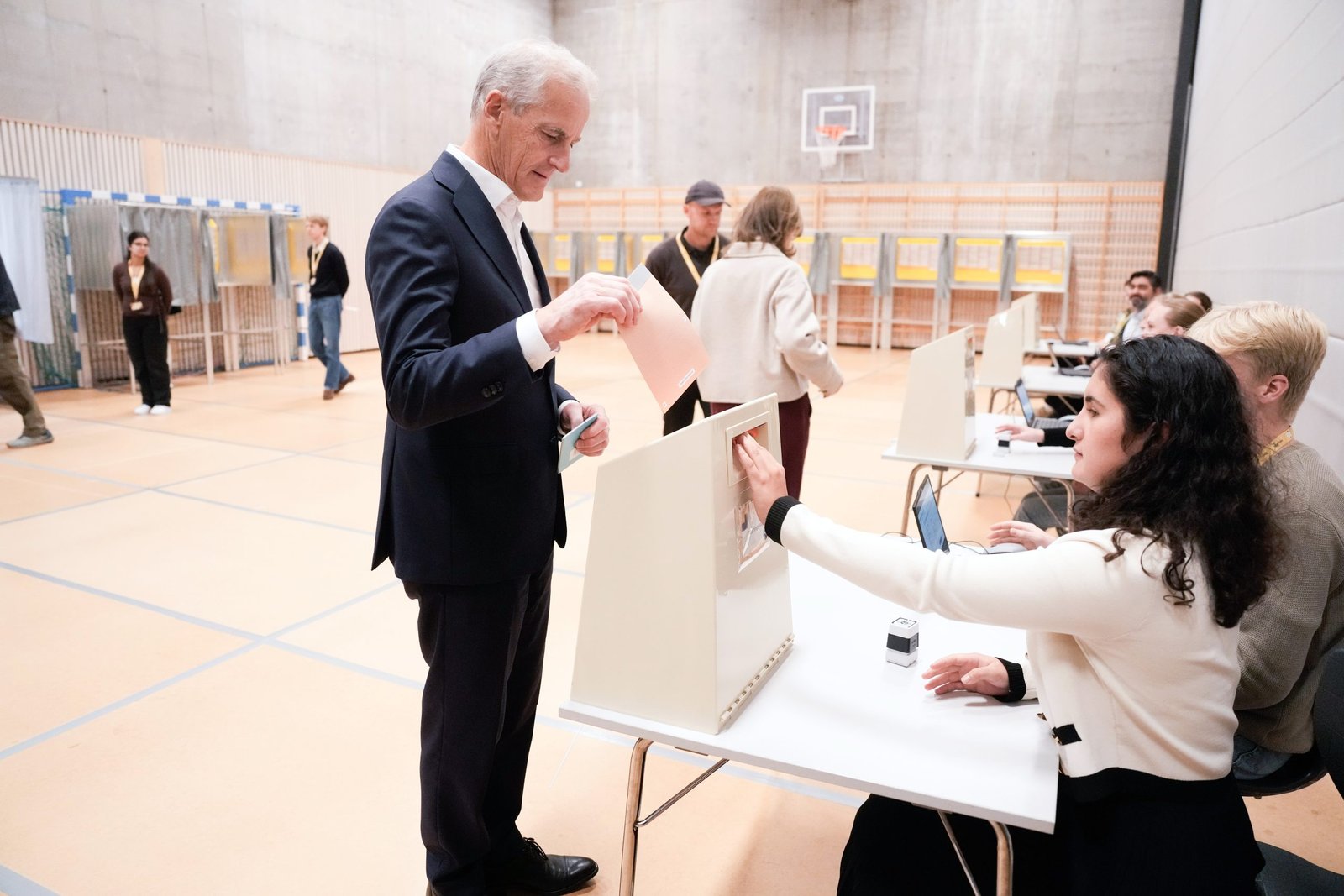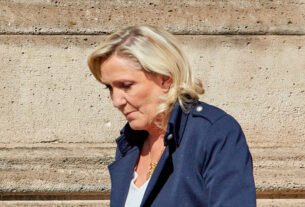Norway’s centre-left coalition topped the polls in Monday’s parliamentary election, putting Prime Minister Jonas Gahr Støre’s Labour Party on course to continue to govern.
With 73% of votes counted, the five-party coalition is projected to secure 87 seats, barely crossing the 85-seat threshold needed for a majority in the 169-seat parliament.
Støre’s Labour Party campaigned on stability, presenting itself as the safe choice in turbulent times and as a defender of the wealth tax, capped electricity prices and the country’s deal with the EU.
Norway is not an EU member, but is deeply integrated with the single market through the European Economic Area (EEA) agreement, and is currently the EU’s largest gas supplier.
Domestically, only 3-4% consider the EEA as an important election issue, highlighting the growing discrepancy between Norway’s public debate and its geopolitical position.
Fifty-five percent of Norwegians oppose EU membership, having already rejected it twice in referenda in 1972 and 1994.
The right-wing populist Progress Party, meanwhile, emerged as the second-largest force, with 24.7%, jumping from 11.7% in 2021.
The party has attracted strong support by promising to slash government spending on renewable energy, discontinue the wealth tax, tighten immigration and crime policies, and renegotiate the EEA. The party has officially opposed EU membership since 2016.
Labour regained momentum after establishing a one-party minority government in February and introducing a fixed-price subsidy scheme to shield households from soaring electricity bills. Its profile was also boosted by the return of former NATO Secretary-General Jens Stoltenberg as finance minister.
(mm)





